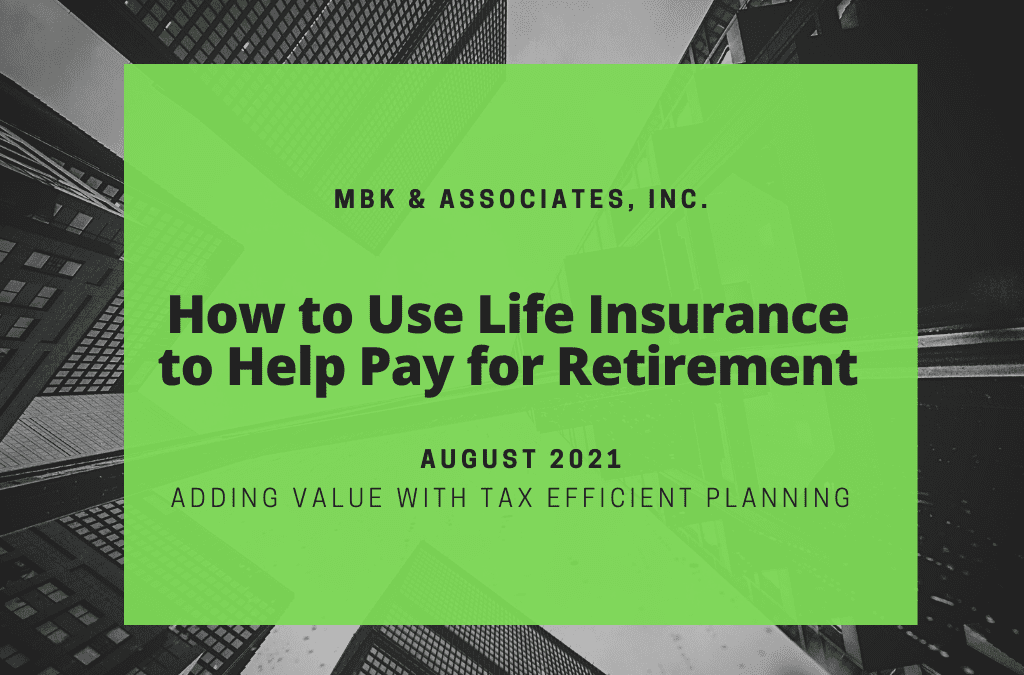When you think of life insurance, what do you think of?
You probably think of that last Kool-Aid salesman who tried to sell you some package to help pay for your funeral right? We are here to change that. If you haven’t noticed, we have a bunch of different strategies to help fund your retirement with creative, tax-efficient planning strategies. We have worked in the life insurance industry for several decades, and it is with that experience we are able to tell you exactly what you should be doing, and exactly what you shouldn’t. Today we wanted to talk a bit about how Life insurance can help pay for retirement.
These examples are merely high level, common methods we’ve seen over the years. For a full idea of what you could do, please review some of our podcast episodes to learn more about higher level strategies we offer.
Build Cash Value
One traditional way of generating income is building cash value with whole life. Unlike term life insurance, which only covers a certain number of years, whole life is meant to be for life. When you die, your beneficiary receives a set amount of money, which is determined at the purchase of the policy. Because it will definitely pay a death benefit, it is more expensive than term life insurance, but… part of your payments goes toward the policy’s cash value. This cash value belongs to you. Depending on the policy, you could also earn interest or dividends. It is important to be careful with these packages, and to consult with a professional expert, as the interest rate will be high, and although you can borrow against the policy, the outstanding loan balance will come out of your death benefit.
Investing with Universal Life
Another type of permanent coverage involves Universal Life insurance. The amount of your premiums can vary, so you can still accrue cash value, but have some flexibility in the event of a tough financial year. You can pay more toward your cash value if you have a great year. Another difference between universal life and whole life, the investment factor. Once you deduct the cost of the policy from you payment, the insurance credits the rest to you, in the investment of your choice. Returns on said investment are yours and go into the value of your policy. The downside? Returns aren’t guaranteed. If you’re putting your savings in the policy rather than the market due to risk, you will still be exposed to risk in some facet. Again, it’s always vital to talk to a PRO before making any big financial decisions.
IRA Conversion
If you have an IRA, or a Roth IRA, you may consider looking at an IRA to IUL conversion. As we mentioned above, Index Universal Life insurance can be a fruitful option when packaged and executed properly. You can learn all about how converting an IRA to an IUL right here on the blog, as well as hear Mark talk at length on the pod here.
To sum up today’s blog, it’s always best to find a provider who you can trust. Someone who will look at your situation, and not try to sell you on the hot item their boss is selling, but to create customized strategies that help demonstrate to you not only what you are doing, but WHY you are doing it. We seek to help you better understand these things so that you can make great decisions for yourself, and your future generations. Thanks for reading folks and we look forward to hearing from you!

